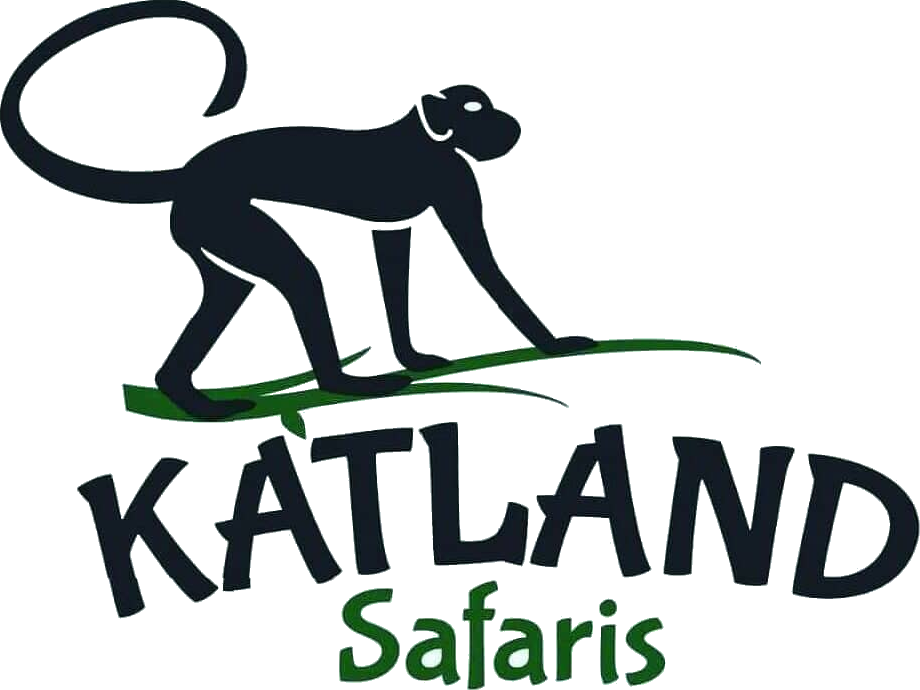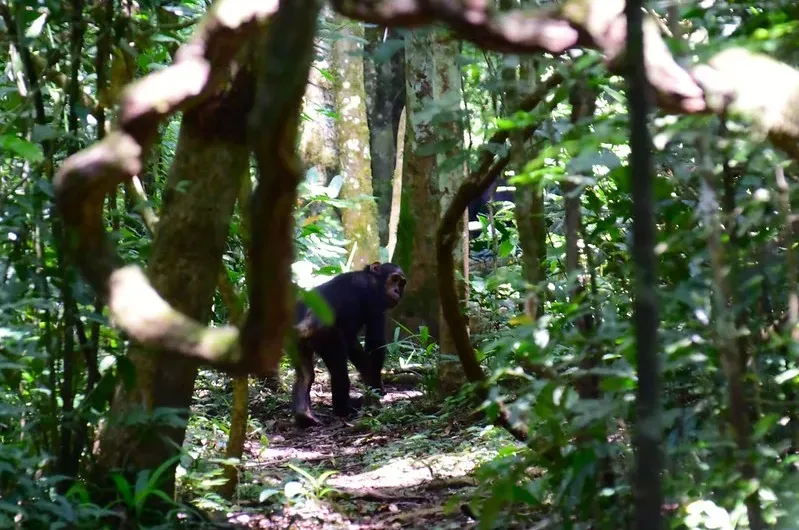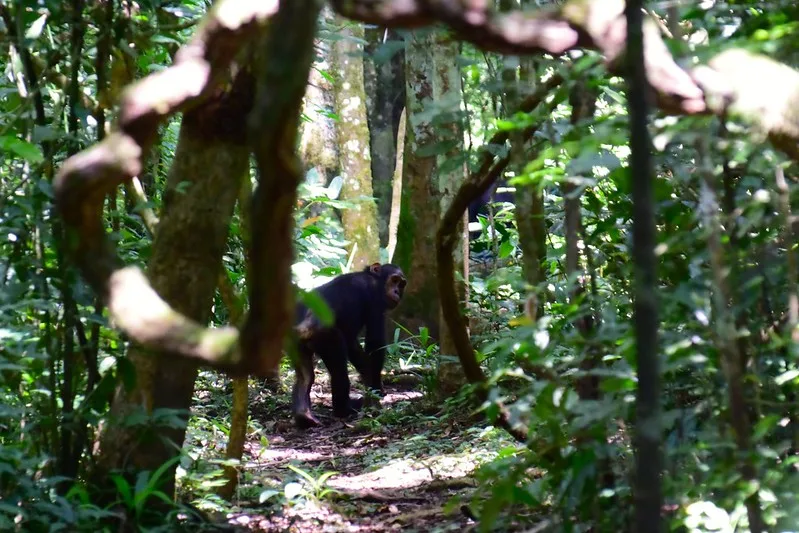Chimpanzee Trekking Discounts in Budongo Forest.
The COVID-19 pandemic has had a devastating effect on Uganda’s tourism industry, affecting businesses across the board from tour operators and hotels to employees and employers. Despite this, there is still reason to be optimistic: after the pandemic ends, you can enjoy discounted chimpanzee trekking in Budongo Forest.
On March 21, 2020, Uganda reported its first case of COVID-19. Since then, 54 instances have been verified, with 4 individuals making a full recovery. To restrict the spread of the virus, many measures were taken since then, including closing the airport and all Ugandan borders to incoming visitors, suspending primate tourism, and transport.
The United Nations World Tourism Organization (UNWTO) has revised its prediction for worldwide international visitor arrivals in 2020 from 3% to 4% increase to a possible decrease of 20-30%. Foreign tourists may not spend $30–$50 billion (international tourism revenues) as a result.
We are hoping that the bans will be removed and that we may go to other game parks, following the standards set forth by the Uganda Wildlife Authority, the World Health Organization, and the Ministry of Health in Uganda, because we have recorded recoveries and no fatalities.
Primate Tourism in Budongo Forest Put on Hold by COVID-19
As a precaution against the spread of the COVID-19 virus, the Uganda Wildlife Authority put a halt on primate tourism until April 30, 2020. Because of their susceptibility to human respiratory diseases, wild creatures such as mountain gorillas, chimpanzees, and golden monkeys must be safeguarded at all costs against the COVID-19 virus, the exact nature of which is still a mystery.
Primate tourism in Uganda focuses on four primary areas: Bwindi Impenetrable National Park for gorilla tracking and habituation; Mgahinga National Park for golden monkey tracking; and Kibale Forest National Park, Kalinzu Forest, and Budongo Forest for chimpanzee tracking.
In an effort to save these monkeys, the COVID-19 pandemic has forced the suspension of chimpanzee trekking in Budongo park. As a result, travelers from any country are not permitted to visit the chimpanzees or the park until April 30th. We prioritize the protection and conservation of all primates for future generations and to enhance tourism in Uganda, which is known as the monkey capital.
Referring to the Budongo Forest chimpanzee trip
Located in the Masindi area of Murchison Falls National Park, Budongo Forest Reserve lies to the north of Kampala. The 800 chimpanzees in the forest reserve have been there for a long time, and their numbers have been continuously rising. We first examined the chimpanzees in Budongo forest in 1960, and since then, conservation efforts have been keeping the chimpanzees alive and well, drawing in more tourists.
The Uganda Wildlife Authority and the National Forestry Authority oversee the Budongo chimpanzee trekking permits, which are administered by Ugandan lodges. A number of communities have become used to daily chimpanzee trekking, with the exception of the current hiatus caused by the COVID-19 pandemic. These villages include;
More than 85 individuals make up the Sonso Chimpanzee community, which is one of the oldest groups that have made Budongo Forest their home. A small group of people broke away from the Sonso village and eventually grew into the larger Waibira Chimpanzee community, which now numbers over a hundred persons.
Located on the roadside between Masindi and Murchison Falls National Park, the Kaniyo-Pabidi Chimpanzee Community was habituated by the Jane Goodall Institute and is presently managed by Budongo Eco-Lodge. Near the Waisoke River is the habituated Waisoke Chimpanzee Community. Its origins are in the Sonso community, but it has members from all around.
The chimpanzees’ daily mobility is uncertain, although they may go from the forest’s far east to its northernmost regions. Trekking with chimpanzees demands some physical fitness, but if you’re not up to the task, the guides and porters will be more than happy to assist you.
What makes Budongo Forest Reserve an ideal location for chimpanzee trekking after COVID-19?
Once COVID-19 is out of the picture, we can look forward to an adventure in the midst of nature, where we may recharge our batteries by seeing the stunning chimpanzees in Budongo forest. Discounts on chimpanzee trekking are anticipated to be provided after the COVID-19 pandemic as a means for the tourist industry to recover from the pandemic and attract more visitors.
Changes to chimpanzee release dates
Tour companies are now permitted to reschedule chimpanzee permits up to twice until March 31, 2022, thanks to a relaxation in the restriction imposed by the Uganda Wildlife Authority. Those who have already paid the 30% deposit for the permits are eligible for this offer.
If you are planning your trip now and find that you will not be able to attend on that specific day, we may transfer your permits to another date for your chimpanzee trek in the future. We recognize that every nation heals at its own pace and ends lockdowns according to its own condition.
Save money on chimpanzee hiking excursions
If you are concerned about your finances, chimpanzee trekking in Budongo forest is an affordable option. Our reduced packages are likely to be comparable with other tour operators, and Katland Safaris will customize yours to fit your budget and demands. To see our packages and make an inquiry, please visit our website.
Transportation expenses cut down
The cost of transportation to the Budongo Forest Reserve is expected to be decreased for all of our all-inclusive packages after the epidemic. The cost of transportation, which was $100 per day on a budget vacation, drops to $70 to $60 per day after accounting for car rental and driver/guide expenses. Putting aside $40–$50 to pay for additional costs, such as entry fees and additional lodging. After COVID-19, transportation is expected to be one of the many ways that travel is affected.
Hotel Rooms at a Discount
In order to make up for lost revenue due to cancellations and other costs associated with the coronavirus, several lodging establishments in the Budogo Forest and Murchison Falls National Parks will likely provide discounted accommodation rates. You may choose from a variety of budget-friendly to opulent hotels in Budongo for your chimpanzee trekking accommodations. In order to make up for lost revenue, most lodges have kept their 2019 and 2020 prices, which will likely be even more heavily reduced. In addition, all lodges must follow the COVID-19 prevention protocols set up by the Ministry of Health.
After the first COVID-19 pandemic Save money on chimpanzee treks in Budongo Forest
The most effective methods for walking with chimpanzees in the Budongo forest After the first COVID-19 pandemic
The Uganda Wildlife Authority and the Uganda Tourism Board are stressing the need of following the best practices established by the World Health Organization and the Ministry of Health in Uganda, which are generally recommended for all tourists. See below
In order to make sure that everyone stays safe, the briefing point will stress the need of social distance and sanitizing by washing hands.
You must provide a certificate proving that you are clear of the COVID-19 virus, either from your own nation’s health ministry or from your place of origin. The airport will also need this.
In our ongoing effort to safeguard both ourselves and the environment, we ask that you please wear a mask and gloves (preferably cloth).
Please do not come to see the chimpanzees if you are sick with a cold or any other contagious disease. You should always see your doctor to ensure your health is suitable for the gorilla walk before traveling to the park, since this will be decided by the chief ranger, who has the authority to prohibit you from participating in the journey.
In order to undertake chimpanzee trekking in Budongo forest, guests must be at least 15 years old and provide their original passport for verification.
Please do not discard any trash in the park. It is recommended that you return all items to your backpack before entering the jungle.
To protect the chimpanzees from airborne infections, you must keep at least 7 meters (21 feet) away from the gorillas.
Chimpanzees are able to get human respiratory illnesses, therefore it’s best to cover your mouth and nose when you cough or sneeze to prevent spreading them.
The most critical thing individuals can do to keep themselves and others safe is to accept personal responsibility. In order to be safe both on the road and in everyday life, travelers should study up on the fundamentals (WHO advise for public).
Keeping up with the latest news is crucial, particularly while traveling. Travelers looking for up-to-date information from health and travel experts should check with reputable sites like the World Health Organization (WHO) on a regular basis.
Every traveller has a dual responsibility to ensure their own safety and the safety of those around them. They need to be alert to the signs and symptoms and follow all the guidelines for personal cleanliness.
After the COVID-19 pandemic, why book your safari with Katland Safaris? Because we prioritize and guarantee responsible travel. Safari guides will provide customers with hand sanitizer, water to stay hydrated, and reminders to sanitize often during the excursion.
You shouldn’t miss out on the post-COVID-19 chimpanzee trekking discounts, and guides with colds can’t drive customers till they’re well. Our ability to curate unforgettable experiences is a product of the cohesive team we’ve built over the years, which includes both youthful and dynamic employees, as well as seasoned and dedicated directors and managers who are native Ugandans.
Get in touch with us using this form, and a member of our team will be happy to provide you with reliable, up-to-date information. Safari reservations and TripAdvisor both give Katland Safaris great reviews and ratings.


